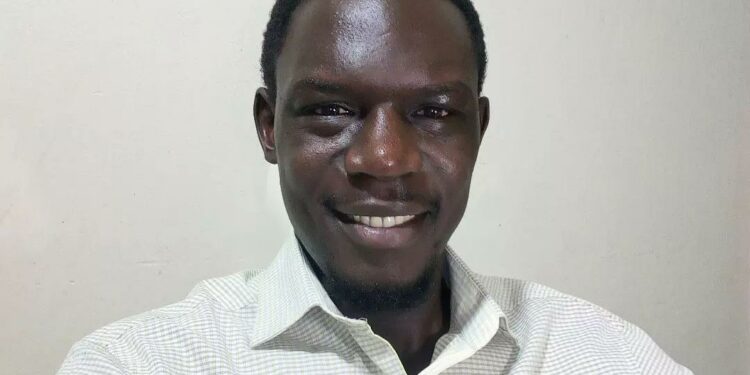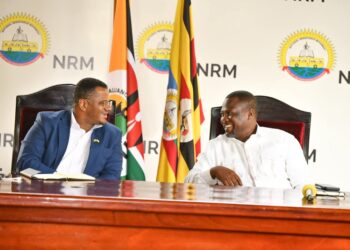Angola’s pilgrimage to a desirable multiparty state is faced with challenges akin to those of Uganda, Zimbabwe, and Equatorial Guinea to name a few. Africa’s autocratic rulers, not leaders to be precisely smart on the topic rarely dream of leaving power. One political analyst clearly stated; ‘African leaders would nevertheless aspire to work as ancestors in their governments even when they expire in office. The justification for being cagey on naming a successor. It shows how power is sobbed with them. Absolute power corrupts absolutely. This makes it a widespread problem with African leaders as envisaged by President Yoweri Museveni in 1986 after capturing power.
Angola runs to the polls today shortly after Kenya one of Africa’s model democracies has accomplished the same though still attempting to prove its integrity from electoral crimes and controversies. João Lourenço 68, the incumbent under the People’s Movement for the Liberation of Angola (MPLA), the party which has led Angola right from independence faces off with Adalberto Costa Júnior 60, the National Union for the Total Independence of Angola (UNITA) the lead opposition party since independence.
As usual, the ruling party (MPLA) has promised to deliver more than before. However, Angola has an almost illiterate population having grown up without the opportunity for education during the civil war. The country continues to deposit high index school dropout rates, child mortality rates, and lofty poverty levels compounded by a next to nonexistent democracy. The continued crackdown on media houses, civil society organizations, and dissenting political voices especially from the UNITA their major political contenders right from independence renders the political waters more acute than desirable to cross.
Unlike his predecessors, Dos Santos, the incumbent employs a pseudo-liberal system of administration to offer a more befitting autocratic rule. The voter turnout is predicted to be low since most voters don’t have trust in the whole electoral system. Close to 14 million voters are expected to partake in today’s election though the opposition claims this figure was inflated by the ruling government as leverage for electoral fraud since the electoral commission did not fully clean up the voter’s register.
The people of Angola have been robbed of their wealth, dignity and freedom in equal measures. This is apparent as one may analyse the pathetic way of life the citizens live. They lack clean water, electricity and medicines in health facilities making them susceptible to deadly diseases like cholera and Ebola. Angola was one of the worst hit countries during both the covid19 and Ebola pandemic. The oil-rich country once referred to as the land of oil and diamonds is grappling with a limping economy amidst rampant corruption.
The MPLA has capitalised on the repatriation of Dos Santos’s remains three days ago for political equity to drum up support for the incumbent. Political analysts have termed this a deliberate tactic by the regime to warm-heartedly woo the electorate into empathy for their party. However, the opposition coalition headed by UNITA has vowed to continue using the same occasion as an opportunity to remind the voters about the mischief of the regime right from independence most especially under Dos Santos.
The UNITA party fervently founded by Jonas Savimbi continues to push for key constitutional and governance amendments in pursuit of a total liberated Angolan government. Its flag bearer Mr Adalberto Costa Júnior has promised to give justice to the families whose beloved ones were butchered by the Dos Santos regime. The party has vowed to bring an end to corruption and recover all monies and assets stomached by the MPLA regime in addition to releasing all political prisoners.
UNITA’s major challenge lies with the electoral commission which it has always accused of being partisan and rigging elections for the ruling MPLA.
It argues all EC commissioners and local election observers are MPLA royalists whose major aim is to secure victory for MPLA rather than to prepare, preside and oversee a peaceful and democratic election an allegation the incumbent Mr João Lourenço has dismissed as he jostles to serve his last term in case he doesn’t push for a constitutional amendment on term limits once he sweeps today’s elections as already predicted.
Ironically, elections in Africa have become a life and death affair, a fading shadow of democracy the explanation voter turnout keeps dropping each election cycle while election petitions soar.
The agitation for a peaceful transition of power is ripe in many African countries, particularly where it has not transpired before. Presidents from countries like Uganda, Angola, Zimbabwe, Mali, Equatorial Guinea, Sudan, Rwanda, Cameroon, Gabon, and Chad to name but a few are indebted to their citizens for this experience and experiment of democracy called peaceful transition and transmission of power.
We wish Angola a peaceful election and transition of power in case the incumbent loses.
jpkamwada@gmail.com
The writer is a political, economic and social commentator on African affairs.
Do you have a story in your community or an opinion to share with us: Email us at editorial@watchdoguganda.com













